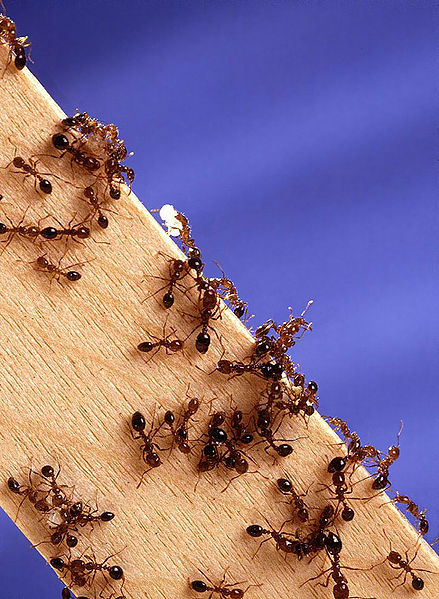The way people currently try and combat invasions of biting, stinging fire ants may be missing an important point. And that is that these alien species may be passengers swept along by a tide of human disturbances to the environment rather than being aggressive drivers of change in their own right.
 That's according to a study in this weeks' journal PNAS by Joshua King and Walter Tschinkel from Florida State University in the US.
That's according to a study in this weeks' journal PNAS by Joshua King and Walter Tschinkel from Florida State University in the US.
Invasive species are an increasing problem around the world. They can drive out native species and be a real nuisance for people. That is definitely the case for red fire ants in Florida. This particular invasive species arrived from South America on a cargo ship early in the 20th century and is a huge problem in US, and in many other parts of the world. The ants give a nasty bite to people, and cause many millions of dollars damage to crops and livestock.
Until now, it has been assumed that the main reason that fire ants are such a problem is because the colonies they form are so huge and aggressive.
But now it seems, at least for fire ants, that people may be very much to blame for unwittingly encouraging the spread and success of alien species.
To find this out, King and Tschinkel conducted a large scale experiment in pine flatwoods in Florida.
They took plots of 40 by 40 metres, and in various combinations they had some which they left alone, some which they mowed twice a year, and some which they ploughed once a year - they mowed and ploughed because these are the sorts of things that take place when people convert natural habitat for other uses. They then introduced colonies of fire ants to some of these plots then for three years monitoring the plots to see what happened.
They found that the fire ants did much better in the mown and ploughed plots, they lived longer and the colonies grew bigger. And that the native ant species did badly in these disturbed plots, and did even worse in plots that were disturbed and also had fire ants present.
The researchers even saw that in disturbed plots were fire ants were not deliberately introduced, still the alien ants found their way there and established themselves.
This means that perhaps current ways we try and control invasive ant species might be missing an important part of the problem. By perhaps wrongly assuming that it is the competitive, aggressive nature of the fire ants that makes them so successful, methods often used to try against outbreaks include applying harsh pesticides that have unwanted side-effects on the rest of the ecosystem.
Now King and Tschinkel have shown that what is possibly more important is to consider how fire ants invade and establish themselves areas of disturbed habitat and perhaps by doing something about the way we use the land, we might be in a better position to tackle and curb the spread of this nasty pest.
- Previous Small clutch clue
- Next Extinct birds were distinct family










Comments
Add a comment